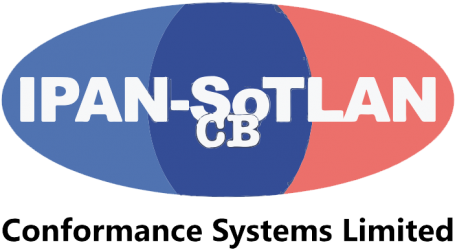Examination Information
Examination Development
IPAN-SoTLAN certification examinations are written and developed by members of IPAN-SoTLAN Examination committee and Subject Matter Expert groups. Currently, IPAN-SoTLAN Examination Committee and four active Subject Matter Expert groups are responsible for developing IPAN-SoTLAN examinations. Each Subject Matter Expert group and the Committee are responsible for test writing of each category of certification examinations. The Committee and each group are composed of a diverse pool of experts with various years of cognate experiences in analytical laboratory practice and management who work assiduously to write examination questions.
The questions developed for each examination are determined by examination content. Periodic task analysis studies will be performed to determine appropriate topics for inclusion on the examination content. Task analyses carefully assess any updates or changes that may have occurred in the profession over time and ensures that the questions included on the examinations are relevant and accurately measure the most up-to-date advances in analytical laboratory sector. The IPAN-SoTLAN task analysis studies also provide the examinee and employer the basis of a valid, reliable, fair and realistic assessment that reflects the skills, knowledge and abilities required for competent job performance.
The development of multiple choice questions, short structured questions and examination forms are performed by the IPAN-SoTLAN Examination Committee in collaboration with Subject Matter Expert groups (SMEs). Examination in all categories (CLA, CWA, CEA and CFMA) consist of 100 questions.
Questions are not designed to be product-specific unless a single product defines a topic area. Questions are meant to measure the core knowledge that an analytical laboratory analyst should know, whether in Nigeria or International-based.
Examination Content
IPAN-SoTLAN Certification examinations are designed to test knowledge and abilities required to perform Core Duties with minimal acceptable competence. These Core Duties have been categorized into the Examination Content Outlines, which summarizes the areas that are included on the examination.
Examination questions are designed in such a way that they require the examinee to draw from training, education and practical experience in the analytical laboratory sector as well as information from textbooks and professional manuals in order to reach the correct conclusion.
The examination questions will vary in their complexity just like the varying complexity of the core duties of laboratory analysts. Some will be simple and routine, whereas others will be more complex, or cognitively demanding. The following three levels are used to describe the complexity of the examination questions that candidates will encounter in the examination:
- Recall – questions at this level typically require the simple recall or recognition of specific facts, concepts, processes, or procedures, with little to no problem solving involved. You may be asked to identify, illustrate, recall, and/or recognize specific information.
- Application – questions at this level will involve some basic problem solving, calculations, or the interpretation and application of data. You may be asked to calculate, categorize, classify, compare, differentiate, explain, specify, translate, and/or apply knowledge.
- Analysis – questions at this level may involve higher-level problem solving, evaluation, or the fitting together of a variety of element into a meaningful whole; they will usually require many steps in the thought process. You may be asked to analyze, evaluate, formulate, generalize, judge, predict, and/or use inductive or deductive reasoning to arrive at a solution.
Click on CLA Exam Content Outlines or CWA Exam Content Outlines or CEA Exam Content Outlines or CFMA Exam Content Outlines to Download.
The final scoring of the examination is based on the number of questions and correct answers. The number of questions answered correctly determines candidates' scores. There is no penalty for guessing. Although IPAN-SoTLAN strongly recommends that candidates attempt to answer every question, failure to complete every question does not immediately imply failure of the exam. The minimum passing score applied to each examination is set by the IPAN-SoTLAN Examination Committee. When taking the examination, it is recommended that candidates should try their best to score as high as possible. Candidates should not try to target the minimum passing score.
The decision on certification examination result will be confined to either a Pass or Fail, candidates will not be informed of their actual scores.
Rescoring
Although IPAN-SoTLAN has full confidence in the methods and procedures used to evaluate the examinations, candidates may request a rescoring of their examination answer scripts. Requests for a rescore must be received in writing within 30 days of the release of examination score. Rescore requests are subject to a fee of half of the initial examination fees paid by candidates. Rescore results are sent directly to the candidate within four to six weeks and are considered final. Any attempts to appeal a rescore will not be recognized.
All examination questions are given in the multiple choice and short structured questions format. This format is considered the most effective for use in standardized examinations because it allows for a greater coverage in content for a given amount of examination time and improves competency measurement reliability.
Exam Delivery Mechanism
All examinations are paper/pen based format and are written in English language only.
